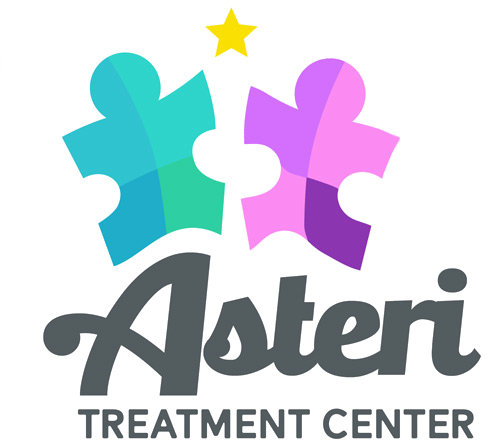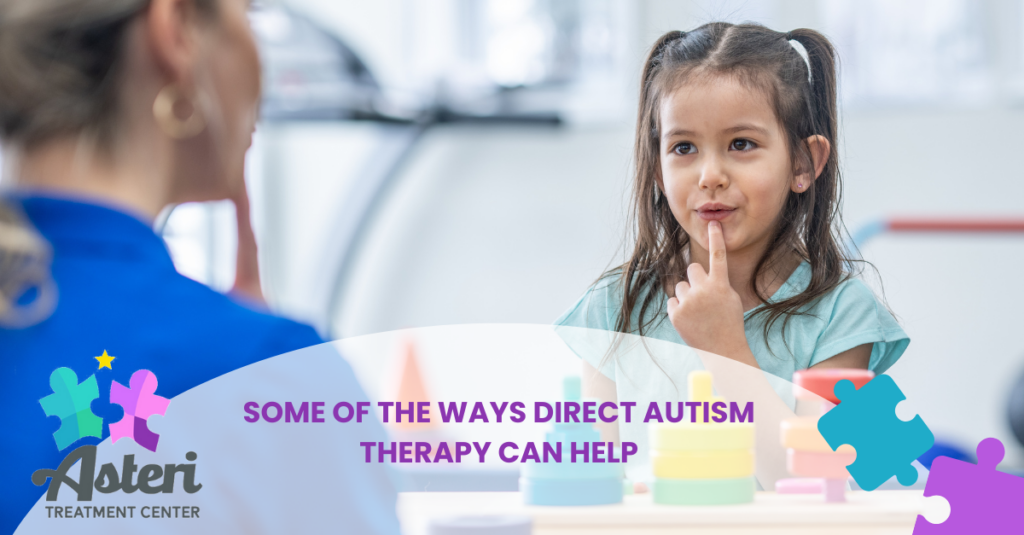Autism spectrum disorder (ASD) can influence a child’s communication, behavior, social interactions, and more. While every child is unique, studies have shown that early and consistent intervention can make a difference in their development. We can help. Here at Asteri Treatment Center, one of the ways that we can help is through Direct ABA Therapy. Among its many benefits, this can provide structured, personalized support in real-world settings like home, school, and the community.
As with all of our other forms of therapy, this ABA therapy is always tailored to each child’s needs. Our goal is to empower children with autism by fostering independence, improving social skills, and reducing challenging behaviors. There are many ways that this direct autism therapy can help your child thrive.
1. Personalized Learning in Familiar Environments
Children with autism often struggle with adapting skills learned in clinical settings to everyday life. Our ABA Therapy bridges this gap by delivering therapy where it matters most—whether at home, school, or in the community. Research shows that learning in natural environments enhances retention and generalization of skills. The benefits to this can include:
- Therapy sessions at home reinforce daily routines like dressing, eating, and hygiene.
- School-based support helps children follow classroom instructions and engage with peers.
- Community outings teach safety, social norms, and adaptive behaviors.
2. Improves Communication Skills
Many children with autism experience speech and language delays. Our therapy uses evidence-based techniques to encourage verbal and non-verbal communication.
- Techniques specifically designed to help non-verbal children express needs.
- Role-playing and social stories enhance conversational skills.
- Parents and caregivers learn strategies to reinforce communication at home.
3. Reduces Challenging Behaviors
Repetitive behaviors, meltdowns, and aggression can hinder a child’s progress. Our therapy identifies triggers and replaces negative behaviors with positive alternatives.
- Functional Behavior Assessments (FBAs) determine the root cause of behaviors.
- Positive reinforcement encourages desired actions (e.g., praise or rewards for staying calm).
- Consistent strategies across settings prevent confusion and reinforce progress.
4. Encourages Social Interaction
Many children with autism struggle with social cues, making friendships difficult. Our direct therapy incorporates peer interactions and group activities to build confidence.
- Structured play that teaches turn-taking and sharing and other skills.
- School-based therapy helps children participate in group activities.
- Social skills groups provide a safe space to practice interactions.
5. Independence in Daily Living
From brushing teeth to preparing a snack, daily tasks can be overwhelming for some children. Direct therapy breaks these skills into manageable steps.
- Task analysis teaches self-care routines step-by-step.
- Visual schedules provide clear expectations.
- Techniques that can build real-world competence.
6. Enhances Academic Performance
Children with autism may struggle with focus, following instructions, or completing assignments. Our therapy supports academic success by:
- Breaking lessons into smaller, understandable parts.
- Using visual aids to reinforce learning.
- Collaborating with teachers to implement classroom strategies.

7. Supports Family Involvement
Therapy isn’t just for the child—it empowers families too. Always, here at Asteri Treatment Center, we can train parents and caregivers to reinforce skills consistently. This could potentially include:
- Parent coaching sessions teach effective ABA techniques.
- Siblings learn how to engage positively with their brother or sister.
- Families gain tools to manage challenges and celebrate progress.
8. Promotes Generalization of Skills
A common hurdle in therapy is ensuring skills apply across different settings. Direct therapy gets around that. With our therapy, we have a much better possibility of children adapting what they learn.
- Practicing greetings at home, then at school.
- Using the same calming strategies in various environments.
- Encouraging flexibility in routines to reduce rigidity.
9. Early Intervention Can Yield Long-Term Benefits
Studies show that early, intensive therapy leads to better outcomes. Our therapy capitalizes on neuroplasticity, helping young brains develop critical skills.
- Early language intervention improves long-term communication.
- Behavioral strategies introduced early prevent entrenched challenges.
- School readiness increases with early social and cognitive support.
10. Builds Confidence and Self-Esteem
Children with autism often face frustration when struggling with tasks others find easy. Success in therapy fosters a sense of accomplishment.
- Mastering a new skill boosts pride and motivation.
- Positive reinforcement builds a “can-do” attitude.
- Social successes reduce anxiety in group settings.
At Asteri Treatment Center, our direct therapy services are designed to meet children where they are—whether at home, school, or in the community. By focusing on individualized, real-world applications, we help children with autism reach their fullest potential.
If you’re considering this therapy for your child, remember: every small step forward is a victory. With the right support, children with autism can develop the skills they need to lead fulfilling, happy lives. To see how we can help, schedule a free consultation either through our site or by giving us a call.

